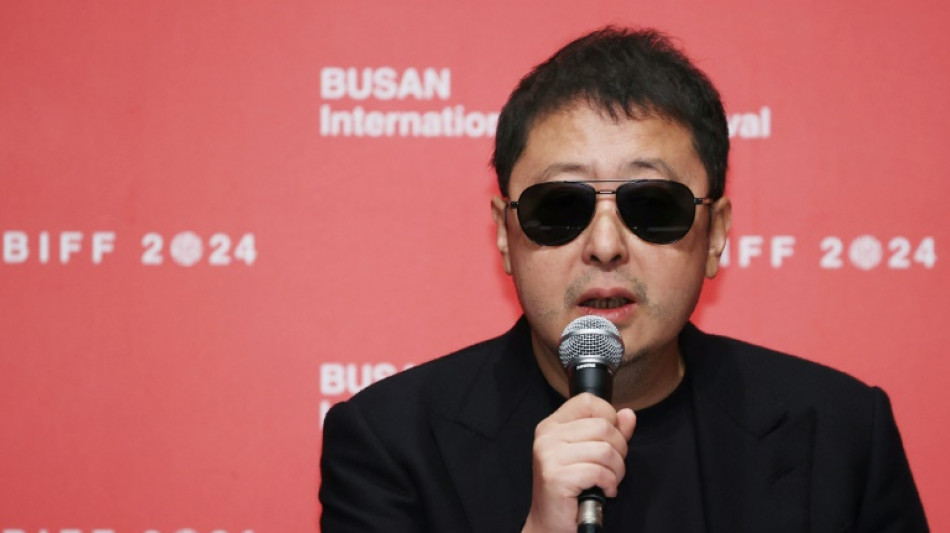

China's Jia brings film spanning love, change over decades to Busan
Chinese director Jia Zhangke's ambitious latest, which utilises footage shot across two decades, offered a peek into the evolving nature of cinema as it unspooled at this year's Busan International Film Festival.
"Caught by the Tides" combines a story of elusive love with a panoramic portrayal of recent Chinese history using everything from low-resolution digital camera footage to a scene enhanced with cutting-edge AI technology.
And while it explores the meaning of the past, the film's creation emphasised innovation.
Jia assembled and recontextualised footage shot over more than 20 years, including unused scenes from previous films, newly filmed sequences, and random images he captured during his travels -- blending documentary and fiction.
The result, with a format reminiscent of Richard Linklater's 2014 film "Boyhood", creates a vivid record of time passing, particularly through lead actress Zhao Tao, Jia's long-time collaborator and wife in real life.
As she goes on a fruitless search for a lost love, audiences witness her age before their eyes.
The film also uses images related to key events that have shaped contemporary China, such as the successful bid for the 2008 Olympics and the construction of the Three Gorges Dam, which resulted in often overlooked suffering for those displaced by the project.
"After Covid, I felt that one era had ended and a new one was emerging," Jia told reporters in Busan when asked what motivated him to create "Caught by the Tides".
"With the rapid advancements in technology, including science, the Internet, and AI, people's lifestyles have also shifted. I realised that during this period of change, it was important to process the (accumulated) footage I had previously filmed."
Actress Zhao described the film as a "truly precious gift."
"It has allowed me to document my 20s, 30s, and 40s through the medium of film, while also expressing the lives and struggles of many women through the character," she told reporters.
The film played over the weekend as part of BIFF's gala presentation section.
- Covid, cinema and AI -
Jia's feature debut, "Xiao Wu", earned the director BIFF's New Current Award for emerging filmmakers in 1998, when he was just 28.
"It's not an exaggeration to say that my life as a filmmaker started in Busan," Jia said, adding he had missed the South Korean port city since his last visit.
He has since won the top prize at the Venice Film Festival for "Still Life" (2006), among other prestigious awards, establishing himself as one of the most important Chinese filmmakers of his generation.
"Jia stood out as someone who is obviously talented. He was, above all else, original," Kim Dong-ho, the 87-year-old BIFF founder, told AFP of the Chinese filmmaker's younger years.
Now 54, Jia has brought his latest film to Busan at a pivotal moment of change for the festival.
BIFF's opening night featured a streaming title for the first time in its history, and it hosted a day-long conference just on the theme of AI in content production.
At the festival's main venue, giant posters of Netflix's latest streaming projects underlined the shift -- including its opening film "Uprising," positioned next to a festival gift store that ironically proclaimed: "Theatre is Not Dead."
Jia's film, by its end, reflects and evokes these changes and what may lie ahead, showing its characters queuing for PCR tests and wearing masks during the Covid pandemic, an era that contributed to the rise of streaming platforms worldwide.
One scene was modified using AI technology, changing the film that the protagonist watches to create a stronger link to an element introduced later in the story -- robots.
When reflecting on his some 26 years in film, Jia said: "It feels like I've been drifting in an endless ocean."
But "completing each film made me feel like I stood tall, having overcome the waves."
P.Darmody--IP




